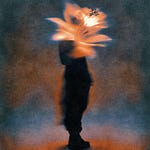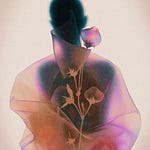When it comes to wisdom, where can I even begin?
I will start by saying that I speak from my own belief systems and experiences of wisdom. There is an and/or quality to wisdom that feels hard to pin down; an ever-evolving living archetype which flows through all of life.
I don’t want to assume that what I speak of here is universal, although I believe there are universal themes within wisdom which can be found in the ancient crevices of every society. Wisdom varies throughout cultures and can depend on many factors, including the age of the civilization, how it was conceived, how many of their practices and beliefs are inherently aligned with the natural ways of the earth, how their beliefs have developed and how spiritually mature that culture is. Wisdom could currently look different in white western countries such as the UK and the US to how it looks in certain parts of Africa, India and the global south in general. Many of us in the west have been deliberately disconnected from our earth-honouring ways in favour of patriarchal colonial ideologies which value greed, power and domination over human lives and the dignity of all life on the planet. Sadly, these ideologies have now also spread to cultures where wisdom traditions were once held as the cornerstone of society.
These traditions vary greatly due to the connections people have with their rich folklore, spiritual beliefs and indigenous practices, which have been passed down - broken or unbroken - over hundreds and thousands of years. A people who have been detached from healthy community and from their true selves are generally going to find it harder to access their inherent wisdom than those who have grown up under the wise guidance of their elders, connecting them to ancient stories, indigenous practices, and earth-aligned beliefs.
This is not to say, however, that wisdom is inaccessible to those of us who have not been raised in these environments. I would hazard a guess that most of us haven’t. It’s just that now, wisdom must be accessed in a slightly different way - a way which involves our self-leadership and trust, one which connects us back to our own intuition in a culture which has tried so hard to sever us from it.
Many of us were raised with older people who were not wise elders. We witnessed these people be given familial roles of authority which they abused, either through active harm or neglect. Growing up, I first experienced this with my paternal grandfather, whose constant criticism and threats of physical harm created a poisonous family culture; one where we all simply normalised that this was what eldership meant. That this was somehow what it looked like to ‘know better’. That being harmed was necessary for our growth, and our family. Even now, his behaviour is widely dismissed with a ‘just ignore it. That’s just how he is.’ The thing is, others started to follow suit, traumatized by his behaviour yet devoid of a healthy role model. When unaddressed, this harm continues to trickle down through families in insidious ways and fractures us from each other and ourselves.
Within diasporic families whose trajectory of the last few hundred years was dictated by the harm of colonial rule, this is common. How can elders within our families be expected to be connected to their inner wisdom when they’ve been so deeply disconnected from their own land, their culture, and their birthright? It is deeply painful. The acknowledgement of this can often be where wisdom emerges. In our grief for what we have lost. In the grief of what could be, and the kind of relationships we could have had.
Wisdom is not being afraid of our own pain. It is knowing that no matter how unbearable it may feel at the time, it will pass once it is truly felt and gently acknowledged. Wisdom is knowing that the pain will not kill us, even if, in those moments, it feels like it will never end. Wisdom is knowing that, in that deep and tender place, there is a part of us which longs to be remembered and held, and brought back to life; a part of us which was once lost. Wisdom is knowing that these parts of us are evergreen, and simply went into hiding. Wisdom is learning how to see in those moments of darkness, uncertainty and mystery.
Why? Because we are faced with moments of darkness, uncertainty and mystery in our every day lives. We are asked to navigate incredibly challenging situations, not knowing the outcome. We are asked to surrender our trust to a larger force, and keep taking our next steps forward in the darkness, not knowing if our feet will land on solid ground. We are asked to build the bridge into the unknown only by walking it. This is what is continually asked of us with our families, our health, our finances, our relationships, our careers, our communities and our planet.
We are being asked to navigate uncertain times. And when we are afraid of being afraid, when we are afraid of the paralysis of pain, we become paralysed, unable to take the next step. We become trapped in our fear of the unknown.
It’s my belief that many of the issues we face today is because we are afraid of facing our own pain, in the fear that it will consume us. In a desperate attempt to distract ourselves, we can fall into hedonistic escapism and addiction; a way to disconnect from what we perceive as a painful outer reality. Or we project our fears onto the people and the world around us; operating from a place of insecurity which can cause us to unintentionally control, harm and manipulate others in a need to feel some sense of safety.
I am a consultant for leaders with a decade of leadership experience within organisations. But I am also a mystic; someone who surrenders to the mystery of life, over and over again. This is different to the modern, white-washed idea of the mystic that has become commodified in western ‘spiritual’ culture. It is not a brand, or a graphic that is printed onto products to be sold en masse. It is a calling to meet life as it is, no matter how painful or uncertain it may feel. And it has been through this constant surrender to life that its multidimensionality has become even more real to me.
Last year, I was diagnosed with Hodgkins Lymphoma. I chose not to read too much about it so that I could stay in my present experience with curiosity and openness, because it was happening anyway and I wanted to choose how I met that reality. The collective terror and power of the ‘c’ word had people caught in a paralysis that I was determined not to be sucked into. Immediately after my diagnosis, not knowing whether I would actually live or die, I released a video for those going through similar experiences, offering another perspective on it. My mother had died of Leukemia at the age of 35, and I was now 36. I had lived with the very solid reality of death since I was 9 years old. At a time when most other children were unburdened by what was considered an exclusively adult horror, my very worst fear in this life had already been realised, and the only thing I could do was to face it, or not. Even though I struggled to do so for many reasons, eventually, through the death of another close family member, I was invited to face myself and the agony of losing her. In those long weeks of facing my long-buried grief, I thought I, too, would die. But I didn’t. I released it. I felt lighter. The world looked clearer. I had hope again. And through my years of deep diving into the true nature of death, I also came to know that it wasn't as scary as we are made to believe. That it was often more challenging to live than to die, yet ironically our lives were made challenging by our inherent fear of death, which lies at the root of most of our issues.
People die. Animals die. Plants die. Our dreams and expectations die. Relationships die. Institutions die. But there is more to the story than that. Life does not necessarily end with death. Life swiftly follows death. In these uncertain times, we are being asked to befriend the idea of death and endings in a different way, which will help us to cultivate our wisdom from a much deeper place than terror. From a place of knowingness in the cycles of life, death and rebirth. From a place of resurrection. From an embrace of, and a curiosity towards, the deep mysteries. After all, life will keep life-ing. It will keep throwing its curveballs our way, and we get to choose how we respond, moment by moment. We get to decide who we want to be in the face of it all, and that is deeply powerful and transformative.
Just like the parts of ourselves frozen in fear, wisdom, too, can be resurrected within us, our communities, our organisations and within leadership.
When the nature of life, which flows through every part of us, from families to organisations, is so deeply mysterious and uncertain, what qualities would we most need in someone who was stewarding us through that? Would it be someone who was fixed and rigid in their beliefs, in their leadership style, and who offered a ‘my way or the highway’ approach? Would it be someone who was punitive; punishing their co-workers, family members and community for simply being impacted by the many inevitable uncertainties and challenges of life? Would it be someone who felt it was ok to bully and intimidate those they saw as a threat, or an abundant source of narcissistic supply?
Or would it be someone who deeply saw us in all of our humanness? Who showed us - and themselves - grace and compassion as they helped us navigate it together, as we all worked towards a common goal? We are well aware of the organisational needs of a leader and how they often have to work towards priorities and deadlines. But when the essence of wisdom is lacking from these responsibilities, leaders become fragmented from themselves and others, mechanical and suppressed. Life cannot flow.
A wise leader understands the nature of life. They understand the cycles of life, death and rebirth, the pain we experience as humans, as well as the difference between the necessary pain of transition and growth and the unnecessary pain of suffering. They know that we don’t have to suffer. They know that groups and organisations are not separate to life. We bring our life into everything we do, including our work. Wise leadership includes the courage - even in the face of fear - to address abuses of power, as where there is harm, life cannot flourish. We are part of the whole, and the whole is a part of us.
They know that love is not just passivity in the face of harm. Love is also ferocious in the face of inhumanity. It is being willing to lose something - be it rigidly held ideas, relationships or ways of being - in order to protect and stand up for the dignity of ourselves and others, as well as this earth. It is being willing to let things die, and to be reborn in some other way which we do not yet know.
We do not yet know. This is, to me, what a wise leader might say when faced with challenge, rather than scrambling for an answer which rises from the panic and pressure to know everything. We do not yet know, but let’s take the next right step. Let’s see. Let’s remain curious and open to the possibilities. Some of which we do not yet know. And that’s ok.
For leaders navigating and developing their own wisdom during uncertain times, I offer consulting sessions to gently guide you through the process.
For those navigating their own journey with grief and would like a guide through the underworld of death, grief and loss, you may find my book Half Woman Half Grief beneficial.
Click here to explore my full collection of talks, podcasts, books and articles.













Share this post